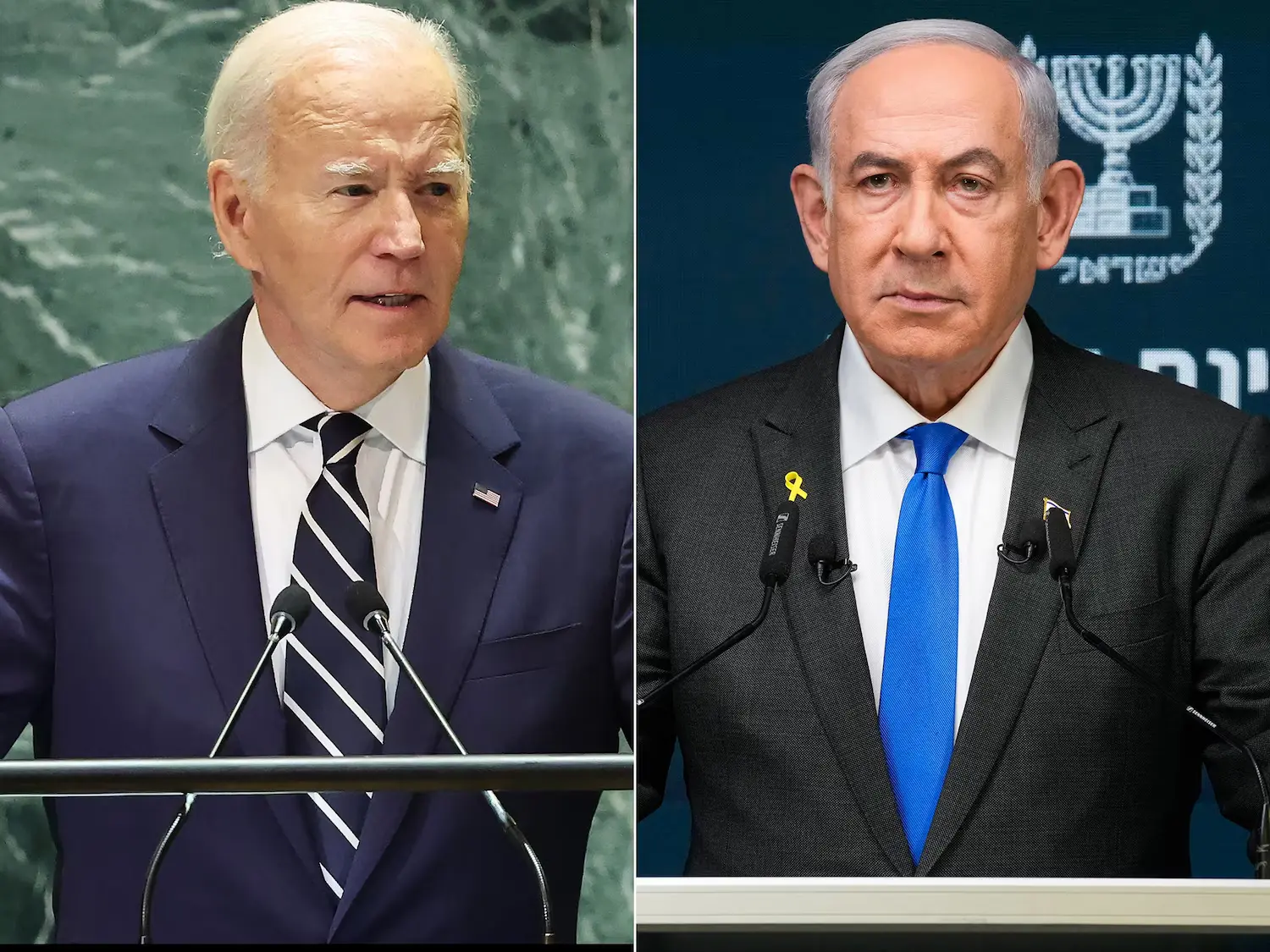Following Benjamin Netanyahu’s resounding rejection of the parameters of a 21-day cease-fire plan to halt the fighting in Lebanon on Thursday, the Biden administration’s relationship with Israel has grown increasingly tense.
The prime minister’s office released a statement as he travelled to New York for his Friday speech at the United Nations annual high-level meeting, claiming that the prime minister “did not even respond” to the American and French proposal and that the Israeli military should keep fighting Hezbollah, a militant group based in Lebanon, “with full force.”
White House officials had earlier praised a joint statement that had been published by the U.S., the European Union, and six other countries approving the plan for a 21-day truce, dubbing it a “important breakthrough.” Netanyahu’s rejection followed hours later.
Although Washington claimed to have communicated with Israel before to the joint statement’s issuance, it failed to provide an explanation for the apparent lack of coordination.
We would not have taken the approach we did while crafting that statement. John Kirby, a spokesman for the National Security Council, stated on Thursday that the remarks were backed by discussions with senior Israeli officials the day before. Otherwise, they would not have been issued at the time and in the manner that they were.
Still, ABC News has learned from multiple American sources close to the talks that the United States has long considered convincing Israel to approve of a truce to be a difficult task.
After last week’s assaults on the militant group’s communication infrastructure, which were widely believed to have been carried out by Israel, the Israelis believe that Hezbollah would benefit from a break so that it could regroup and launch retaliatory attacks against Israel.
They claim that the Israeli government sees a ceasefire of any duration as contradictory to its primary goal of expediting the return of displaced people from regions near its northern border.
According to Danny Danon, Israel’s permanent envoy to the United Nations, Israel would rather resolve its problem with Hezbollah through negotiation. However, he warned that “if it fails to return our residents to the homes, then we will use all means at our disposal.”
Danon stated, “We are very honest about it,” and claimed that the mediators “know exactly what we want.”
It was previously anticipated that Netanyahu’s presentation to the United Nations on Friday would be difficult, but the recent rift between the United States and Israel is likely to add extra strain.
While addressing the United Nations Security Council on Wednesday, U.N. Secretary-General António Guterres warned that “hell is breaking loose in Lebanon.”
More than 90,000 people were displaced in Lebanon in just 72 hours, according to the U.N. Refugee Agency, which was added on Thursday.
Hezbollah, a terrorist group designated by the United States, started launching rockets across the Lebanese border with Israel shortly after Hamas attacked Israel on October 7. Israel increased its military campaign earlier this month after the low-level confrontation dragged on for nearly a year and threatened to erupt multiple times.
